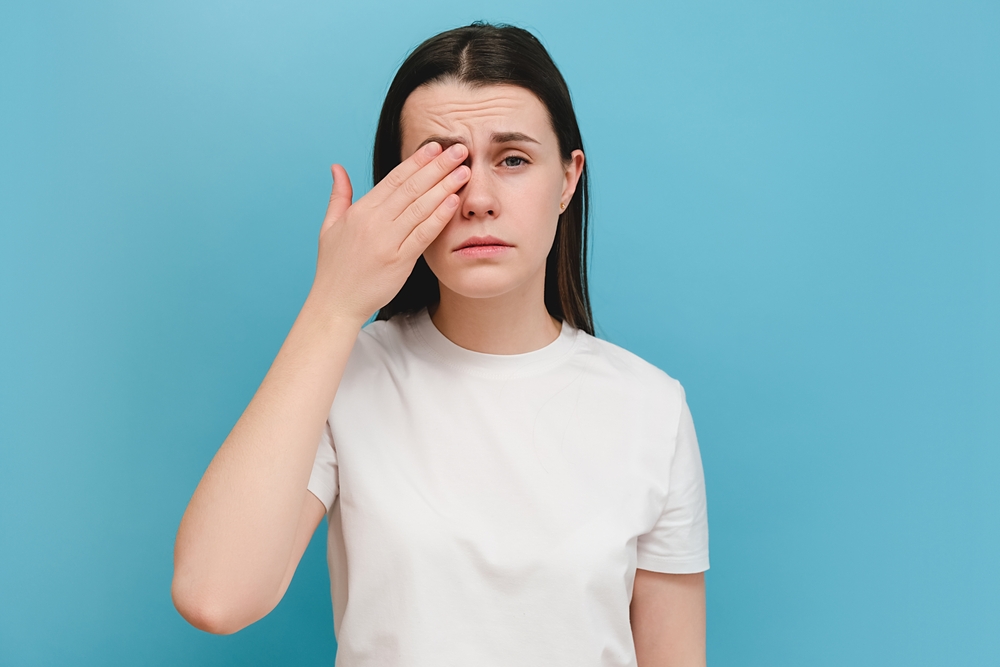
Dry eye is a common eye condition that happens when your tears cannot properly moisten your eyes. The condition can be temporary or chronic. Temporary dry eye can last a few hours or months, while chronic dry eye may last days, weeks, months, and years. There is no cure for chronic dry eye, but there are treatments that can help control it.
Dry eye can cause more severe eye complications if you do not get treatment. In severe cases, it may cause eye infections and corneal damage, leading to partial or total vision loss.
Can Dry Eye Trigger Other Vision Problems?
Dry eye can cause other vision problems. It usually causes the following signs and symptoms:
- Burning, stinging, or itchy feeling in the eyes.
- Sore, red eyes.
- Light sensitivity.
- Gritty sensation.
- Stringy discharge in or around the eyes.
- Trouble wearing contact lenses.
- Difficulty driving at night.
- Blurry vision.
- Eye fatigue.
With dry eyes, your eyes may become watery. It can seem puzzling, but that is the body’s reaction to dry eye irritation. These tears are typically water and lack the lubricating properties of normal tears.
See your eye doctor if your dry eye symptoms do not resolve. Your eye doctor can do an eye exam to determine what makes your eyes dry.
What Causes Dry Eye?
Dry eye may occur due to excessive tear evaporation or reduced tear production.
Excessive Tear Evaporation
Tears consist of water, oil, mucus, and proteins. Water provides moisture, oil provides lubrication, and the mucus ensures the tears spread evenly across the eyes. The proteins protect the eyes from infection.
A lack of oil in tears can make tears evaporate too quickly. Your tears may lack oil if the oil glands (meibomian glands) become clogged. Clogged meibomian glands are common in patients with rosacea and other skin problems.
Other factors that may cause your tears to evaporate too fast include meibomian gland dysfunction (MGD), blinking less frequently, eye allergies, additives in topical eye drops, eyelid issues, dry air, wind or smoke, and lack of vitamin A.
Reduced Tear Production
Dry eyes can also happen when your tears do not contain enough water to moisten your eyes. That leads to an eye condition called keratoconjunctivitis.
Factors that may cause reduced tear production include aging, allergic eye disease, Sjogren’s syndrome, lupus, thyroid disease, rheumatoid arthritis, and vitamin A shortage. Contact lens wear, nerve damage, and laser eye surgery can also cause dry eye. But dry eye resulting from laser eye surgery is usually temporary.
Additionally, medications like decongestants, antihistamines, antidepressants, hormone replacement therapy, and medicines for high blood pressure, birth control, acne, and Parkinson’s disease can trigger dry eye.
Are You at Risk for Dry Eye?
You are more likely to experience dry eye if you:
- Are above 50 years old. Your eyes tend to make fewer tears as you age.
- Wear contact lenses.
- Have undergone laser or refractive eye surgery.
- Are female. Women are more likely to experience dry eyes due to hormonal changes during pregnancy, menopause, or using birth control medications.
- Eat foods that are low in vitamin A. You can find vitamin A in broccoli, carrots, and liver.
- Eat a diet low in omega-3 fatty acids, which you can find in oily fish, vegetable oils, and walnuts.
For more on dry eye, visit Carousel Eyecare at our office in Houston, Texas. Call (281) 666-9835 to book an appointment today.




